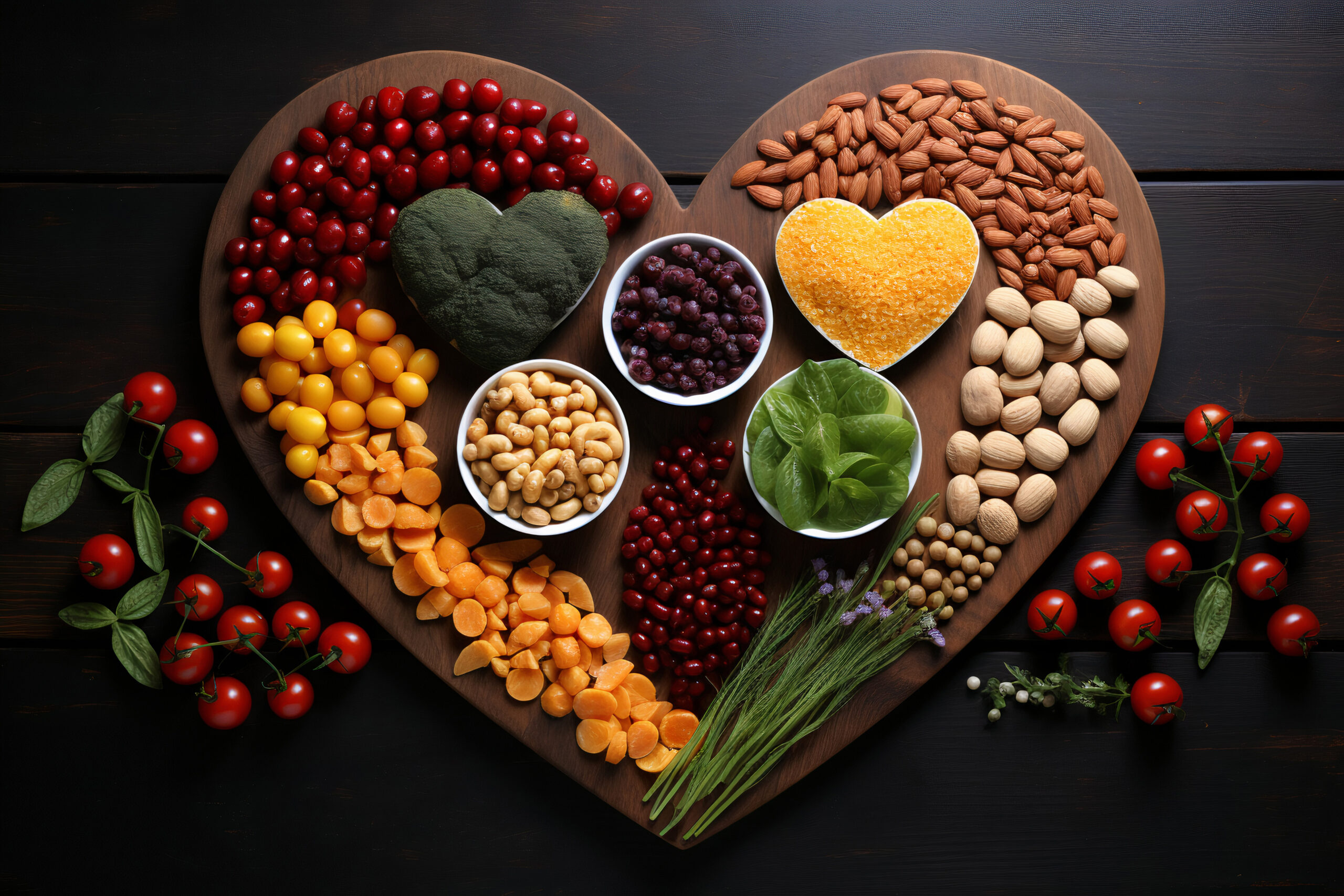5th floor, Lakshmi Sharada Arcade,
6th Main Road, No 251,
17th Cross Road,Sector 7,
HSR Layout,Bangalore,
Karnataka-560102

Heart disease is the world’s leading cause of death.
Having high levels of LDL (bad cholesterol) is linked to an increased risk for heart disease. Even low levels of HDL (good cholesterol) and high triglycerides puts one at an increased risk.
You diet plays a very important role on your cholesterol levels. Listed below are a few foods that can help lower cholesterol and improve other risk factors for heart disease.
Apples- Apples are rich in fibers that are very helpful to improve cholesterol levels. An apple, depending on size contains anywhere between 3-7g fibers. Apples also contain a compound called ‘polyphenols’ that have a positive impact on the cholesterol levels. (https://academic.oup.com/jn/article/135/10/2291/4669864)
Pulses and Legumes- Legumes and pulses various sprouts and dals. They also contain a lot of fiber, minerals and protein. A review of studies showed that eating 100g of legumes daily is effective in lowering bad LDL cholesterol by an average of 6.6mg/dl, compared to not eating legumes (https://pubmed.ncbi.nlm.nih.gov/24710915/)

Avocado- Avocados are a nutrient dense fruit. They’re a rich source of monounsaturated fats and fiber — two nutrients that help lower “bad” LDL and raise “good” HDL cholesterol. A study showed that overweight and obese adults with high LDL cholesterol who ate one avocado daily lowered their LDL levels more than those who didn’t eat avocados (https://www.ncbi.nlm.nih.gov/pmc/articles/PMC4330060/).
Dark Green Leafy Vegetables- These vegetables are very beneficial for the heart. Dark green leafy vegetables like spinach and kale are rich in lutein and other carotenoids that are linked to a lower risk of heart disease. One study suggested that lutein lowers levels of oxidized “bad” LDL cholesterol and could help prevent cholesterol from binding to artery walls (https://pubmed.ncbi.nlm.nih.gov/21697302/)

Okra/ Lady’s finger- Okra is a vegetable that is very commonly cultivated around the world. Research has found that a gel in okra called mucilage can help lower cholesterol by binding to it during digestion. This helps cholesterol leave the body through stool. ()
Extra Virgin Olive Oil- EV olive oil is a very common cooking medium in Mediterranean diet. Substituting saturated fats like those found in butter with monounsaturated fats present in EV olive oil can help reduce LDL ”bad” cholesterol levels. (https://pubmed.ncbi.nlm.nih.gov/11795851/).
Dark Chocolate- Cocoa present in dark chocolate contains flavonoids and their antioxidant and anti-inflammatory properties can benefit health in various ways. In a study, participants drank a beverage containing cocoa flavanol twice a day for a month. By the end of the trial, their LDL cholesterol levels and blood pressure had decreased, and their HDL cholesterol levels had increased (https://pubmed.ncbi.nlm.nih.gov/26348767/).

Green Tea- Green tea contains antioxidants called catechins that have various health benefits. Help activate nitric oxide, which is important for healthy blood pressure. They also inhibit cholesterol synthesis and absorption and help prevent blood clots. (https://www.ncbi.nlm.nih.gov/pmc/articles/PMC2748751/) & (https://pubmed.ncbi.nlm.nih.gov/25934864/)
Garlic- Garlic has many health benefits. Studies have shown that garlic can help regulate blood cholesterol levels (https://pubmed.ncbi.nlm.nih.gov/26764326/).

Fish- The omega 3 fatty acid EPA (eicosapentaenoic acid) is found in fishes like salmon, sardines, and mackerel. EPA can help protect the blood vessels and heart from disease by lowering levels of triglycerides, a fat that enters the bloodstream after a meal. This is how it prevents atherosclerosis and reduces the risk of cardiovascular disease. It also benefits by preventing cholesterol crystals from forming in the arteries, reducing inflammation, and improving the way that HDL cholesterol works.
Nuts- Nuts are a good source of unsaturated fats, which can help lower LDL cholesterol levels. Nuts are also rich in fiber, which helps keep the body from absorbing cholesterol and promotes its excretion. Include in your diet nuts like almonds, walnuts, cashew and hazelnuts.
Oats- A bowl of oats gives you 1-2 grams soluble fiber. Oats contain beta-glucan, a type of soluble fiber that helps lower cholesterol. Eating oats may lower total cholesterol by 5% and “bad” LDL cholesterol by 7% (https://pubmed.ncbi.nlm.nih.gov/21631511/).

Fruits- Fruits are an excellent addition to your diet for better heart health. Fruits are rich in soluble fibers that help lower cholesterol (https://pubmed.ncbi.nlm.nih.gov/18937894/). One kind of soluble fiber called pectin lowers cholesterol by up to 10%. It’s found in fruits including apples, grapes, citrus fruits and strawberries (https://pubmed.ncbi.nlm.nih.gov/22190137/).
High cholesterol levels are a major risk factor for heart disease. Upping your intake of these foods will put you on the path to a balanced diet and keep your heart healthy.